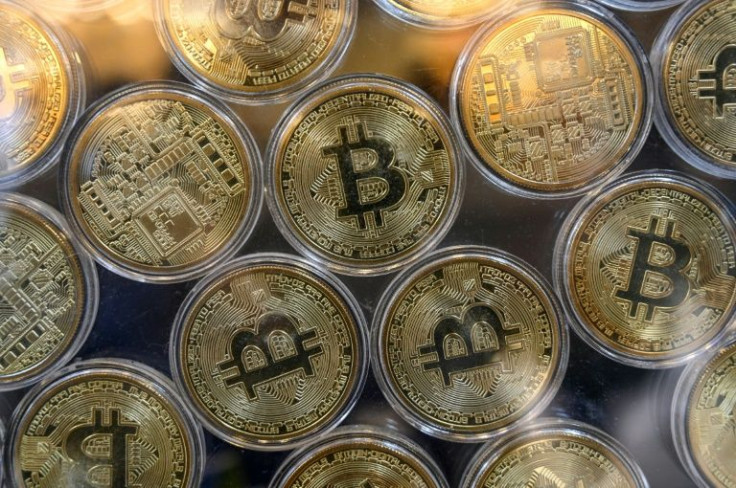Global Stocks Rattled By Fed Monetary Policy Shift
Global stocks mostly sank Thursday after the US Federal Reserve again signaled it was ready to tighten monetary policy more aggressively to combat spiking inflation.
The dollar held steady as traders digested the Fed news from Wednesday, while oil prices continued to climb, with analysts citing rising unrest in petroleum producer Kazakhstan.
Minutes from the Fed's latest monetary policy meeting released Wednesday reiterated that officials were confident the world's top economy was in good shape and able to absorb high borrowing costs, despite concerns over the fast-spreading Omicron coronavirus variant.
"The Federal Reserve continues to wield considerable power over global markets and its latest comments are not what investors want to hear," said AJ Bell investment director Russ Mould.
But some observers were surprised by the market reaction, since the Fed's shift was telegraphed following the policy meeting in December.
"Duh, has anyone been listening?" US economist Joel Naroff wondered.
Central bankers have been flagging concerns about inflation and coming rate hikes "Yet when the Fed put into print that it would be doing what it has been signaling it would be doing, investors suddenly got worried."
The prospect of rising interest rates in the world's biggest economy tends to weigh on global share prices because it increases company borrowing costs and curbs consumer incomes.
CMC Markets analyst Michael Hewson said "markets appear to have been spooked by the prospect that the Fed could well start to normalize policy at a faster rate than had originally been priced in for this year."
Amid high inflation, the policy-setting Federal Open Market Committee already started winding back the vast bond-buying stimulus put in place at the start of the pandemic, with the program due to end in March.
Traders had previously expected the bank to then start lifting rates.
But analysts pointed to the Fed minutes stating that "it may become warranted to increase the federal funds rate sooner or at a faster pace than participants had earlier anticipated."
And Hewson said investors also appeared worried by indications the Fed is beginning to think about reducing its massive bond holdings.
The move to wean the economy off central bank support has rattled markets around the world in recent months, after the cheap cash fueled a series of records or multi-year highs.
With the punch bowl being taken away, traders are in retreat, particularly those invested in tech firms, which are more susceptible to higher interest rates owing to their reliance on borrowing to fuel growth.
After Wednesday's rout, stocks attempted to rally during the session, but bargain hunting efforts were not sustained. The S&P 500 finished 0.1 percent lower following a choppy session.

Asia tracked Wednesday's move lower on Wall Street, and Europe's main indices ended down.
New York - DOW: DOWN 0.5 percent at 36,236.47 (close)
New York - S&P 500: DOWN 0.1 percent at 4,696.05 (close)
New York - Nasdaq: DOWN 0.1 percent at 15,080.86 (close)
London - FTSE 100: DOWN 0.9 percent at 7,450.37 (close)
Frankfurt - DAX: DOWN 1.4 percent at 16,052.03 (close)
Paris - CAC 40: DOWN 1.7 percent at 7,249.66 (close)
EURO STOXX 50: DOWN 1.5 percent at 4,324.81 (close)
Tokyo - Nikkei 225: DOWN 2.9 percent at 28,487.87 (close)
Hong Kong - Hang Seng Index: UP 0.7 percent at 23,072.86 (close)
Shanghai - Composite: DOWN 0.3 percent at 3,586.08 (close)
Euro/dollar: DOWN at $1.1297 from $1.1314 late Wednesday
Pound/dollar: DOWN at $1.3534 from $1.3557
Euro/pound: DOWN at 83.44 pence from 83.46
Brent North Sea crude: UP 1.5 percent at $81.99 per barrel
West Texas Intermediate: UP 2.1 percent at $79.46 per barrel
burs-jmb
© Copyright AFP {{Year}}. All rights reserved.





















